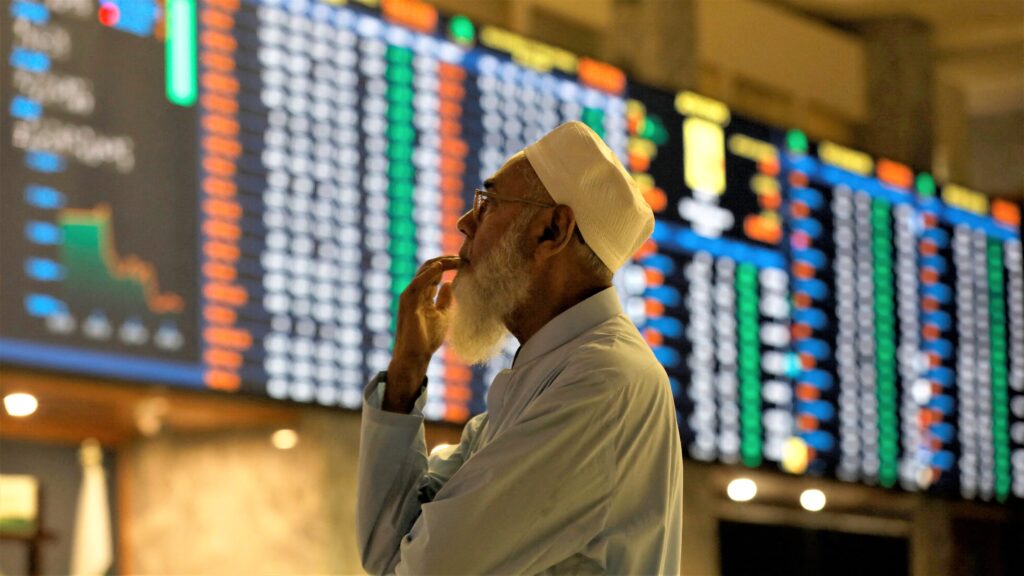Pakistan’s bailout deal with the International Monetary Fund has brought a degree of relief to the cash-strapped country, but another aspect of Islamabad’s strategy for easing its economic crisis is bearing little fruit so far.
The Pakistani government in early June authorized barter trade with Afghanistan, Iran and Russia — encouraging direct exchanges of goods and services without cash as a way of reducing pressure on rapidly dwindling foreign reserves. The Commerce Ministry released a list of 57 eligible products, including oil and gas, under what is called the Business-to-business (B2B) Barter Trade Mechanism 2023.
A month later, however, insiders say the initiative has gained little traction. Experts and traders attribute the slow start to a lack of clarity as well as perceived disinterest from Afghanistan’s Taliban rulers, in particular.
Barter trade has been practiced for centuries but has diminished in today’s globalized world of interconnected economies and modern trade mechanisms. Shahid Hussain, a leader of the Sarhad Chamber of Commerce and Industry — a traders’ body in the Pakistani province of Khyber Pakhtunkhwa, bordering Afghanistan — said, “Many traders living in the bordering regions already follow a practice of buying goods from Afghanistan, making payments in Pakistan and subsequently acquiring goods from Pakistan to be sent back to Afghanistan.” However, he added, this trade is insubstantial, prompting Pakistan to give it a legal form.
A Commerce Ministry official who spoke on condition of anonymity said Pakistan launched the initiative out of desperation, as its foreign currency reserves had shrunk to barely enough for a month of imports.
That was before last week’s IMF deal, worth $3 billion, but the economy is far from out of trouble.
“The primary objective of the initiative is to enhance trade with Afghanistan and, to a lesser extent, with Iran,” the official said.
But the official added that due to strained ties between Islamabad and Kabul, the Taliban have not responded positively. Pakistan has grown frustrated with the Afghan regime’s inability or unwillingness to rein in Pakistani Taliban militants operating from its soil, among other frictions.
Kabul faces severe financial problems of its own, as the Taliban takeover in August 2021 prompted foreign governments led by the U.S. to cut development and security aid and impose debilitating sanctions.
The ministry official acknowledged that Islamabad made the move out of necessity despite being aware of the international restrictions and financial issues dogging Afghanistan — as well as Iran, sanctioned over its nuclear program, and Russia, largely frozen out of international finance due to its invasion of Ukraine.
The Pakistani ministry’s notification allowed imports and exports under barter trade with Afghanistan, but only imports from Iran and Russia. Neither of the other partners is known to have taken action, either, although Iran’s semiofficial Mehr News Agency reported that businesses reacted favorably.
Traders on the Afghan side say they have not received any instructions or guidance from the Taliban government or its central bank. Even though Pakistan issued the order in early June, “Afghan traders are unable to take any action until they receive clear instructions from the Taliban government in Kabul,” said Haji Ghulab, an Afghan who deals in coal.
In theory, the trio of partners ought to be enthusiastic about the arrangement, according to some experts.
“The three countries with which Pakistan has agreed to a B2B barter trade mechanism are finding formal banking systems impractical,” Abid Qaiyum Suleri, head of the Sustainable Development Policy Institute, an Islamabad-based think tank, wrote in an analysis for Pakistan’s The News. “Hence a barter trade with Pakistan is a win for them.”
Pakistan, for its part, “can benefit from this process by accessing cheaper energy from Russia and Iran, and coal from Afghanistan, without using dollars. This can help ease the pressure on its foreign exchange reserves,” he wrote.
Official barter trade could also help reduce smuggling across Pakistan’s borders with Iran and Afghanistan, blamed for substantial foreign exchange losses. The Pakistan Petroleum Dealers Association (PPDA) recently said that 35% of diesel in Pakistan was imported illegally from Iran during the past year. Pakistan recently initiated a crackdown on the smuggling of flour, wheat, sugar and fertilizer to Afghanistan.
Formalized “barter trading cannot completely stop smuggling on the borders, but it has the potential to discourage it,” said Jamshed Ali, a member of the PPDA. Nevertheless, he expressed skepticism that the mechanism would take hold.
Hussain, the Khyber Pakhtunkhwa trade body official, said Pakistani businesses also remain uncertain about how the mechanism is supposed to work. “Despite a month having passed, traders remain unaware of the procedures involved in barter trade,” he told Nikkei Asia.
A section of analysts advised Pakistan to tread cautiously, as the U.S. may frown upon deeper integration with key adversaries Moscow and Tehran. Last month, Pakistan bought its first shipment of Russian crude oil using the currency of another U.S. rival, China.
Washington and Islamabad have a long but complicated history of security ties, and while there have been recent signs of frustration on Pakistan’s part, U.S. support remains crucial economically and against terrorism.
The U.S. and European Union are Pakistan’s main export destinations, while imports largely come from China and the Middle East. The three barter trade partners were not among the top 20 export destinations in the 2021-2022 fiscal year, and Russia also was not among the top 20 import sources.
Source: NIKKEI Asia


